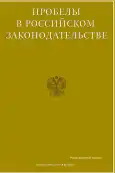Legal Basis for the Activities of the Russian Federation on International Cooperation in the Field of Counterterrorism
- Authors: Misrokov T.Z.1
-
Affiliations:
- North Caucasus Institute for Advanced Studies (branch) of the Krasnodar University of the Ministry of Internal Affairs of Russia
- Issue: Vol 15, No 4 (2022)
- Pages: 132-140
- Section: Articles
- URL: https://journals.eco-vector.com/2072-3164/article/view/531618
- ID: 531618
Cite item
Abstract
The article conducts the author's study of the experience accumulated by the Russian Federation of international cooperation on countering terrorism, improving coordination of efforts with the member countries of the Commonwealth of Independent States, the Collective Security Treaty Organization, the Shanghai Cooperation Organization and other states and international organizations in the context of a changing international situation and gradual destruction pre-existing security system. The purpose of the work is to formulate proposals for improving the issues of cooperation between the Russian Federation and the international community in the field of preventing terrorism and combating it in its various manifestations. The objectives of the work are to identify and critically analyze the problems and gaps in the current international practice of interaction on countering terrorism, as well as to analyze the accumulated experience in coordinating efforts to counter terrorism and to search for promising ways to increase the effectiveness of international cooperation in responding to terrorist threats. The author comes to several conclusions. First, to date, the Russian Federation has formed a broad and detailed regulatory framework that makes it possible to adequately and promptly respond to domestic threats of a terrorist nature, based on an integrated approach to the fight against terrorism. At the same time, the rapidly changing face of modern international terrorism and the development of technologies for committing terrorist acts dictate the need for constant adaptation of domestic legislation in order to maintain its compliance with new challenges and threats. Secondly, in the field of international cooperation, there are obvious gaps in the regulation of a number of issues that play an important role in the effective fight against terrorism, and the Russian Federation, having a significant potential for improving the international legal basis in this area, acting as a prominent and significant participant in interstate relations, is able to make a tangible contribution to the formation of the legal foundations of international security and protection from the threat of terrorism. There is a need for legal regulation of a number of relations associated with activities to combat terrorism, such as informational counteraction to terrorist organizations, ensuring cybersecurity, enlightenment and education as ways to prevent terrorism, the use of integrated forces and means of responding to terrorist threats, and the formation of uniform standards of anti-terrorist legislation. Priority in the current conditions are preventive measures to counter terrorism, which should be based on a comprehensive approach to eliminating the causes and factors that contribute to terrorist activities. Thirdly, in the current international conditions, the vectors of intensifying cooperation on combating terrorism are gradually but clearly shifting towards such international associations as the Collective Security Treaty Organization, the Shanghai Cooperation Organization, the Commonwealth of Independent States and other organizations, where the Russian Federation is presented as an active participant in international interaction. Undoubtedly, while continuing systematic and consistent work on the platform of the United Nations, the Russian Federation must at the same time consistently develop the legal foundations for ensuring international security within the framework of other international organizations.
Full Text
About the authors
Tengiz Zamirovich Misrokov
North Caucasus Institute for Advanced Studies (branch) of the Krasnodar University of the Ministry of Internal Affairs of Russia
Email: misrokovs@mail.ru
Cand.Sci.(Law), Senior Lecturer of the State, Civil and Law Disciplines Department Nalchik, Russia
References
- Aksenova M.A. Legal support of anti-money laundering and terrorism financing regime in the conditions of new technologies integration. RUDN Journal of Law. 2022. no. 26 (1). pp. 112-128.
- Bastrykin A.I. Modern Ways of Countering Terrorism and Extremism // Actual Problems of Russian Law. 2021. no. 6. pp. 167-170.
- Bogdanov A.V., Il'inskiy I.I., Khazov E.N. Terrorism and extremism - a threat to modern civilization // Vestnik of economic security. 2021. no. 1. pp. 181-187.
- Vasetsova E.S. The development of international terrorism in the face of global uncertainty // Socio-humanitarian knowledge. 2020. no. 2. pp. 175-184.
- Kobets P.N. Domestic and foreign approaches to the development of conceptual apparatus in the field of combating cyberterrorism and proposals for improving this normative process // Legal order: History, Theory, Practice. 2022. no. 1 (32). pp. 94-101.
- Novikova O.N. Terrorism in COVID's shadow // Current problems of Europe. 2022. no. 1 (113). pp. 180-198.
- Popova L.I. Global terrorism threat; current situation and preventive measures // Security issues. 2021. no. 2. pp. 41-53.
- Potemkina O.Yu. New EU Initiatives against Terrorism // Scientific and Analytical Herald of Institute of Europe Russian Academy of Sciences. 2021. no. 1. pp. 17-23.
- Sinchuk Yu.V. The Russian Federation in the fight against international terrorism // Vestnik of Moscow State Linguistic University. Social sciences. 2021. no. 4 (845), pp. 103-117.
- Stepkin K.A., Fedosov A.V. Topical issues of countering digitalization (informatization) of terrorist activity // Education and law. 2021. no. 3. pp. 347-352.
Supplementary files











